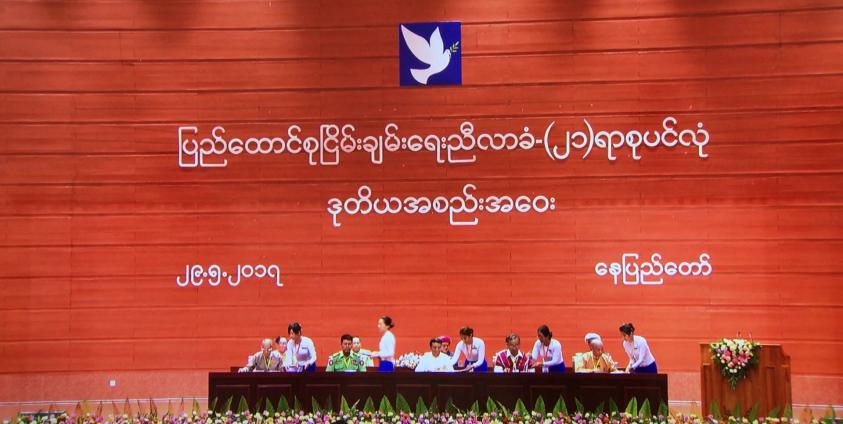At least one ethnic political party is fuming after an accord was signed last week at the closing of peace talks that were poorly attended. The Mon National Party said the 37-point accord that emerged from the second 21st-Century Panglong Conference should not be taken as universally applicable, and cannot be seen to reflect the interests of all ethnic groups as many were not present at the conference.
Nai Layih Tamarh, secretary of the MNP, said the party’s input was not sought before the accord was signed, and the party did not give anyone permission to sign on its behalf.
The Union Accord involves 12 agreements related to politics, 11 agreements related to economics, 4 on social issues and 10 on land and environment. U Thu Wai, chair of the Democratic Party (Myanmar), signed the accord on behalf of political parties, while Lieutenant General Tin Maung Win signed on behalf of the Tatmadaw, U Tin Myo Win signed on behalf of the government, U Tun Tun Hein signed on behalf of the Hluttaw and Pado Saw Kwel Htoo Win signed on behalf of ethnic armed organizations on May 29.
“They should have only recorded the views expressed in the conference and left signing [of the Union Accord] until a future conference where everyone was present,” Nai Layih Tamarh added.
According to Nai Layih Tamarh, the political parties were not given enough time to prepare comprehensive input to submit to the conference in Nay Pyi Taw.
Nai Kyan Yit, a representative of the All Mon Region Development Party (AMDP), said there was confusion even among conference attendees about the political parties’ involvement in signing the accord.
“There wasn’t much satisfaction concerning the representation of the political sector. We didn’t know which party would be signing the Union Accord [on everyone’s behalf]. Difficulties may occur in the next conferences if there continues to be a lack of transparency,” said Nai Kyan Yit.
Translated by Thida Linn
Edited by Laignee Barron








